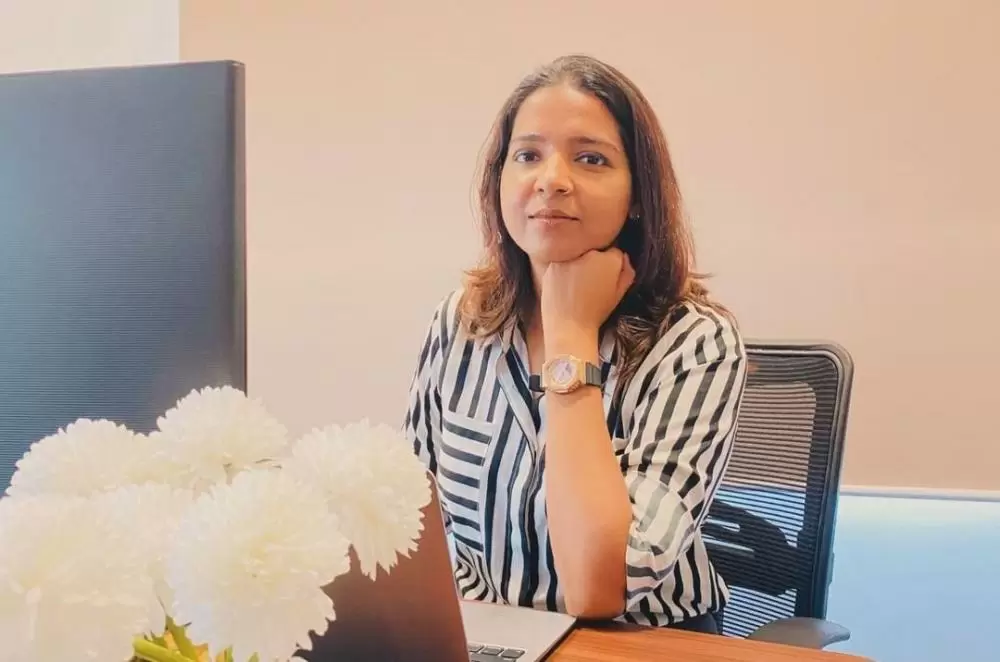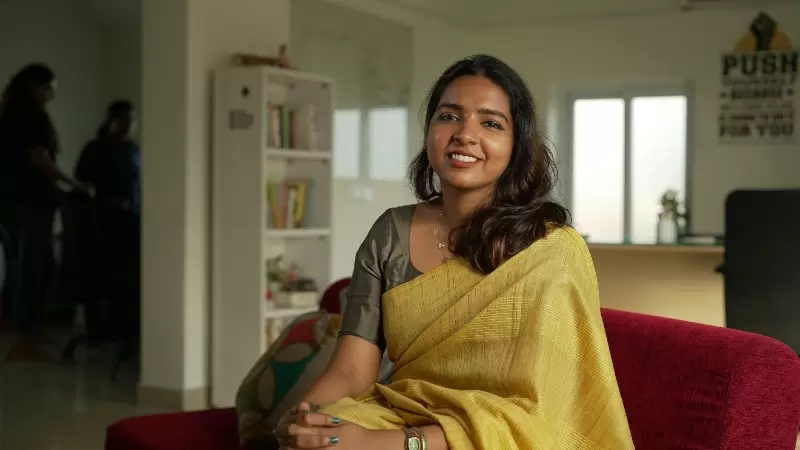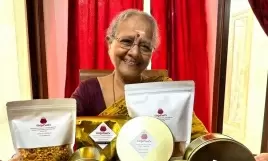Making Parenthood Affordable: Mind and Mom’s Disruption in Fertility Care
25-November-2024
Vol 15 | Issue 48
In India, infertility treatments are often seen as expensive and out of reach. Padmini Janaki, Co-founder of Mind and Mom, is working to change that. Her startup is making fertility care affordable by using an asset-light model that reduces costs. By using underutilised hospital infrastructure, Mind and Mom provides premium-quality care at a much lower cost than regular fertility clinics.
In an interview with P C Vinoj Kumar, Editor of The Weekend Leader, Padmini debunked myths about PCOS and PCOD. She reassured women that these conditions do not stop them from getting pregnant. With lifestyle changes, proper treatment, and medication, women with PCOD can conceive successfully.

| Padmini Janaki, Co-founder of Mind and Mom, making fertility care affordable for women (Photos: Special Arrangement) |
She explained the step-by-step process of infertility treatment, from lifestyle improvements to IUI and eventually IVF if necessary, breaking it down in simple terms for better understanding.
Her passion for making treatments accessible and disrupting the market has been well-received, though it initially faced scepticism from the medical community.
Edited excerpts from the interview.
| Watch Full Interview on YouTube |
P C Vinoj Kumar: What is the success rate of infertility treatment, and how expensive is this treatment?
Padmini Janaki: The success rate globally is only 40%. If you see an advertisement by a fertility centre claiming 100% or 90% success, it’s not true. A straightforward case can range from Rs 1.5 lakh to Rs 2.5 lakh. With multiple cycles, the cost increases. At Life, which is part of Mind and Mom, we are consistently working towards bringing this cost down to Rs 99,000 so that every woman can afford it.
Vinoj Kumar: What is the process of treating infertility for men? Also, you must be having women with PCOS and PCOD coming to you. What are the chances of such women getting pregnant?
Padmini Janaki: First, about the process, step one is understanding the lifestyle of the individual. We advise them to lose weight, follow a healthy diet, and incorporate natural methods for about three months, supported by folic acid supplements.
Step two is IUI (Intrauterine Insemination), a simpler daycare procedure. Many people conceive with IUI. If that fails, we move to IVF (In Vitro Fertilisation), which involves hormonal injections for women to improve egg quality.
During this phase, we identify whether the issue lies with the man or the woman. Tests like AMH (Anti-Müllerian Hormone) help determine egg quality through blood samples, and further investigations identify specific problems.
IVF is an elaborate procedure where the egg and sperm are fertilised in a lab to create an embryo. The embryo is then frozen and implanted at the right time. This process increases the chances of pregnancy but requires careful monitoring.

| Padmini debunks myths about PCOD, offering hope to women seeking motherhood |
Now, about PCOS and PCOD, there’s a myth that women with these conditions cannot conceive. Out of 10 women, at least six or seven may have PCOD at different levels. It is not always severe.
Symptoms include obesity and irregular periods, which can lead to infertility. However, with lifestyle changes and proper treatment, women with PCOD can get pregnant. I have PCOD myself, and I know it is manageable.
Vinoj Kumar: Many fertility clinics are cropping up everywhere. What differentiates Mind and Mom from others?
Padmini Janaki: We operate on an asset-light model. We own our clinics but rent operation theatres for procedures.
Around 70% of hospital assets remain underutilised, so instead of creating additional facilities, we use existing infrastructure. This allows us to cut costs by 50-70%, making treatment more affordable.
IVF is not covered under insurance in India, so we aim to provide affordable and quality care. This model has proven successful in other areas, and works well for women’s health.
Vinoj Kumar: How did doctors initially react to your venture?
Padmini Janaki: It was challenging in the beginning. When I first approached doctors, they were sceptical. Many felt there were already plenty of apps tracking periods and doubted whether we could do anything different. However, I persisted.
I kept meeting doctors until they started accepting our model. Now, many of our investors are doctors and medical professionals. Over time, things have improved, but the journey wasn’t easy.
Vinoj Kumar: Do you see yourself as an aggregator of infertility clinics, like an Uber for fertility?
Padmini Janaki: Interestingly, one of our investors asked the same question. But no, we don’t aggregate. We operate our own clinics under an asset-light model.
For example, we rent operation theatres rather than building new ones, which keeps costs low. This approach ensures that patients receive high-quality care in a premium setting without the hefty price tag.

| Padmini says PCOD is not an insurmountable problem for women to conceive |
Vinoj Kumar: You must be seeing a lot of women with PCOS and PCOD. What are the chances of such women getting pregnant?
Padmini Janaki: There’s a common myth that women with PCOD or PCOS cannot get pregnant, but that’s not true. These days, many women have PCOD. Out of 10 women, at least six or seven are affected at different levels. It’s not always severe.
Symptoms of PCOD include obesity and irregular periods. Infertility can also occur because of PCOD, but with proper treatment and lifestyle changes, women can conceive. I have PCOD myself, and I know it is manageable.
PCOD has various stages. Initial stages are completely solvable through lifestyle changes. With some treatment and medication, pregnancy is definitely possible. Yes, PCOD is a problem, but it’s not an insurmountable one, and women with PCOD can still get pregnant successfully. - ©TWL
















